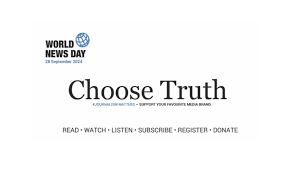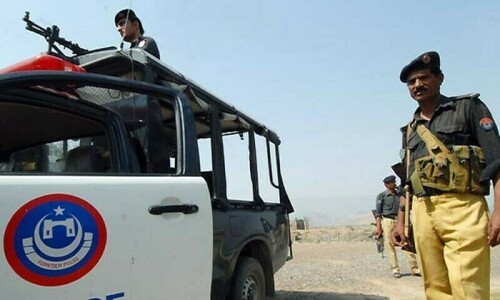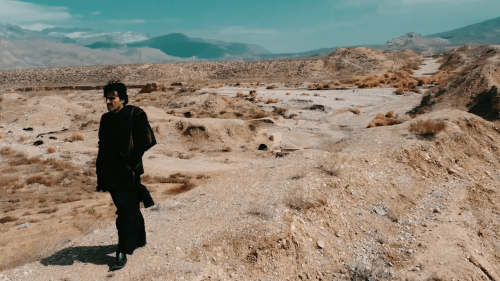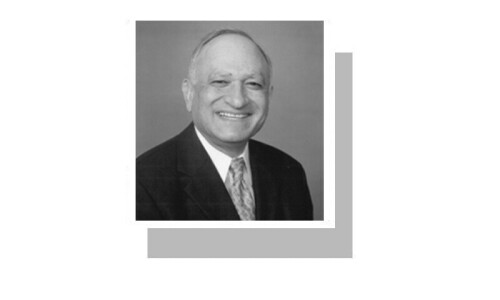Muslim thought & work ethic
While recent scholarship has made considerable advance in the study of Muslim political thought, Muslim ideas on public administration have not received the same attention. I find that the subject can be very engaging and its study rewarding.
The higher bureaucracy in Pakistan used to claim, with a good deal of pride, that it had inherited the British civil servant's tradition of superb competence, probity, dedication to duty, and candour. Actually, it retained only his disposition to arrogance towards the natives and let go of his more desirable qualities.
On the other hand, it is fashionable among our intellectuals to dismiss our colonial legacy as being unworthy of a free people. They would have us look for decent values and constructive ways in our own native tradition. Had they examined our nativity with care, they might have discovered that it is rather barren in the areas of organizational management and the arts of association. But it so happens that we have another source of guidance, our Islamic heritage which we can consult.
Beginning with the pious caliphate, we will first see that it did not admit of contrivances such as the separation of powers and checks and balances. The caliph headed all branches of government, including the administration. He appointed and dismissed, governors and other high officials (judges, tax collectors, etc,) and he oversaw their functioning to the extent possible, acting on reports he received from the public.
In Muslim theory, service to the people is the primary function of government and administration. Umar bin Khattab and Ali ibne Abu Talib, the second and fourth pious caliphs respectively, reminded their provincial governors repeatedly that their foremost duty, and that of their subordinates, was to serve the people honestly, competently, and compassionately. They were enjoined to deal with men fairly, in accordance with law, and not arbitrarily.
In one of his letters to Amr bin al-Ass, the governor of Egypt, (available in a collection of his letters published by Nadwatal Musannafin in Delhi in 1959) Umar wrote: "Every ruler is responsible before God for the welfare of the people, and let it be remembered that the accursed of God is he who is an oppressor."
Umar asked Abu Musa al-Ash'ari, the governor of Basra, to be accessible to the people, and to take personal interest in their problems. In the opening paragraph of his famous letter to Malik bin Ashtar, his governor in Egypt (available in Nahjul Balagha), Ali ibn Abu Talib urged him to promote the people's prosperity. He went on to observe that a ruler would enjoy the confidence of his people only if he was considerate to them, relieved their troubles, and did not oppress them.
Both Umar and Ali asked their officials to be solicitous of the peasantry's difficulties while collecting taxes. The wellbeing of the taxpayer was more important than the tax itself and its proceeds. Collection policy should not impair the citizen's income-generating capacity. The fourth pious caliph admonished Malik that "the ruler who does not pay attention to the prosperity of his subjects and fertility of the land, but concentrates only on revenue collection, lays waste the land and ruins the state."
Taxes should be reduced if the crops had been damaged by natural calamities or other accidents. Loss of revenue in these circumstances should not be grudged, for the people were the "real wealth" of a country. Investment in their welfare would allow them to prosper and enhance their taxable capacity. In his celebrated treatise, Siyasat Namah, Nizam al-Mulk (a mediaeval Muslim statesman and thinker) wrote that in times of adversity the peasant should be given a loan to "keep him viable, lest he be cast out of his home into exile."
Since the poor and the destitute may have difficulty in reaching the ruler, he must find his own ways of getting to know of their condition. He should comfort them, and show them respect, even if others in society hold them in low esteem. "Do not be arrogant or vain towards them," said Ali to Malik. Preoccupation with the "major" affairs of state would not do as an excuse for neglecting the poor. He must give them a share of the state revenues, not only stipends in cash but grain from the government warehouses when necessary. "For the sake of God, Malik, protect them and their rights."
Public officials are asked to be civil in their dealings with the public. Arrogance on their part is to be condemned. Malik bin Ashtar is told never to say to himself: "I am their lord, their ruler, and that I must be obeyed submissively.... If you ever feel any pride on account of your sway over your subjects, then think of the supreme sway and rule of God over the universe."
Officials are asked to adopt a modest bearing towards the public, shun an ostentatious lifestyle, and live as ordinary Muslims did. Umar ordered Amr bin al-Ass to stop leaning on cushions while interviewing people. Nor should he address them sitting on a pulpit; he should stand before them. Governors and other officials were asked to eat simple food and wear clothes made of coarse fabric.
Umar himself was a model, perhaps an extreme one, of austere living. Ali advised Malik to refrain from self-projection and image building. "Do not boast of the good points you may have in your character or the good things you may have done. Do not let flatterers make you vain and egoistic."
Apparently, the Arabs of Umar's time were jealous of their rights vis-a-vis the officialdom. Many travelled to Madina to convey their reports and complaints to the caliph. In order that grievances might be lodged, free access to officials was deemed necessary. Ali asked Malik to appoint a certain time of day for receiving people with complaints. He should listen to them patiently even if they were uncouth or irrelevant. He should exclude his police and army officers from such meetings so that the complainant might speak freely.
Consider the case of the "Governor's Mansion" in Kufa. Sa'd bin Abi Waqqas, the governor, had built a spacious house with a gate in front. The people of Kufa complained to Umar that Sa'd's "palace" had been designed to keep out the common folk as well as the sounds from the nearby market place. Promptly came a letter from the caliph: "I have come to know that you had a palace made which you use like a fort in order to stay aloof from the people.
Use only a part of the house as your residence and let that be near the treasury. Close the rest of the building. Don't put up any gate that inhibits the people from coming in to tell you of their problems."
Nizam al-Mulk warns that when the king and his officials become inaccessible, the business of the people suffers, facts remain concealed, and the state goes to ruin.
The public servant cannot be arbitrary; he must act within the law. He can exercise only those powers which the law allows him. Caliphs and sultans, walis and amils, are all under the law. Since the fundamental law for Muslims is embodied in the Quran, the word of God, the principle of the supremacy of the law is well established. Ali asks Malik to follow the commandments of God and traditions of the Prophet (PBUH) in conducting his administration.
Earlier Umar had given the same advice to Abnu Musa. He told the Qazi of Kufa that if he could not find guidance in the Quran, he should consult the Sunnah, and should that too be unavailing, he should use his own judgment or "refer the matter to me." On one occasion, he ordered Abu Musa to receive 20 lashes for the 20 he had ordered given to a young man who had spoken to him rudely.
Nizam al-Mulk advised that if any judge passed a ruling capriciously, the other judges must report that fact to the caliph who should dismiss that judge. He called attention, approvingly, to a pre-Islamic Iranian custom. On an appointed day, the king heard complaints. If any of them were directed against him, he would step down from his throne and ask the chief justice to judge between him and the complainant "impartially and regardlessly.
"In a letter to Sa'd bin Abi Waqqas, Umar declared that the ruler must be equally just to all: relative and stranger, friend and foe, rich and poor. Whenever Umar himself happened to be involved in a lawsuit, he insisted on being treated on par with the other party. He scolded Zaid bin Haris, the qazi of Madina, for having risen in deference to him when he appeared in the court as a respondent.
In serving the people, the public official is not to observe distinctions of creed and belief. Ali reminds Malik that while Islam makes him a brother to fellow Muslims, bonds of humanity join him with non-Muslims. "Men of either category suffer from the same weaknesses and disabilities.... Let your mercy and compassion come to their (non-Muslims') rescue in the same way and to the same extent that you expect God to show mercy and forgiveness to you."
The judicial function is rated highly. A judge should persevere in examining the pros and cons of matters that come before him. He should demand evidence and reasoning in support of the arguments made. He must bear with detail in sifting fact from fiction, He should be willing to rectify his own error of judgment, and he should not let flatterers turn his head.
There is more that Islam tells us about judges and other aspects of governance and administration but, having run out of space, I shall defer the rest of it until next Sunday.
The writer is professor emeritus of political science at the University of Massachusetts at Amherst, USA. E-mail: anwarsyed@cox.net.
The change in Sindh
The speculation over political changes in the country raises but a faint hope of a better deal for the common man. Nevertheless, it has excited politicians to the point of hysteria. It has made them all garrulous and filled many among them with a lust for power. Here are some examples of distinct noises coming from the Tower of Babel.
Prime Minister Jamali: "My government is here to stay.
Chaudhry Shujaat, chief of PML: A change will come at the centre but not before 2007."
Senior adviser to the president, Sharifuddin Pirzada: "Jamali is PM till further orders."
PPP: "Talks with the government can be only on fresh elections under an independent election commission."
Prof Ghafoor of JI: "After Sindh, a change at the centre is imminent."
Here are some views.
The politicians are also exercising their minds on the change in Sindh.
Makhdoom Amin Fahim: "Shujaat had offered Sindh's chief ministership to the PPP in a government of national consensus but later retracted under the pressure of his partners."
Liaquat Baloch of JI: "PPP and the MMA should join forces to form a government in Sindh to keep the MQM at bay."
MQM: "The consensus government proposal is a negation of the popular mandate."
While politics in Pakistan has been generally self-centred it has never been so farcical. Musharraf dismissed it all with a general's swagger by remarking that democracy was working well because he had empowered the people through the local councils, and if the senior legislators had chosen to thump desks and hurl shoes at each other to let them, he couldn't care less (so to speak). He would neither confirm nor deny the rumours of Jamali's exit from office, his senior adviser had spoken his mind.
Maybe, the pandemonium in the parliament gives Musharraf a kind of satisfaction for he is a believer in democracy at the grass-roots and not at the top. In that case, the rowdy members, even though graduates, might soon give him a pretext to send them packing or, short of that, dismiss the leader of the house, i.e. the prime minister.
At the source of all speculation and authoritative pronouncements, quite obviously, are factional or personal interests and search for offices of profit and power. The safety and welfare of the people figure nowhere. If the claim of Makhdoom Amin Fahim is correct (it is not countered by the parties in power) that he could be the prime minister and his son Sindh's chief minister, only if they were to sever their connection with the PPP it would indeed be a singular exception to the general rule of horse-trading that has been glorified as patriotism by its practitioners.
Whether one goes by the legal position or by official accounts or by street gossip, the position emerging out of this cacophony is that the continuation of the present, and the future, prime minister would be decided by the president and not by the parliament or the people. And yet, most politicians involved in this squabble would like to believe that it is a parliamentary form of government as was ordained by the Supreme Court while legitimizing the military take-over.
This ground reality found a perfect demonstration in the recent change of the Sindh chief minister. Ali Mohammad Maher was not voted out by the assembly and Arbab Rahim was elected only because he was anointed by the mysterious forces in the background. Whatever the other motive that impelled this change, it certainly was not to give the province a better administration.
By most accounts, nostalgia may soon set in for the inexperienced but innocent Maher. The change that suited the civil and military bosses might turn out to be a bad bargain for the people. Arbab Rahim has entered the office with a trite "I do not possess a magic wand". Of course he doesn't. All that is expected of him is to possess a human touch and integrity.
Whatever the worth of the system and the intentions of the people operating or opposing it, the country must be kept going even amidst exploding bombs and political bombast. The authority of a government runs in parallel to the economy and the sense of safety it gives to the people. While for this government, the financial and monetary managers have done their bit, its political and professional managers have bungled thoroughly and it seems, irretrievably.
Until Musharraf and the elements thriving on his largesse see the inevitability of seeking a fresh mandate from the people (the last election was heavily flawed, the emerging situation has made its result wholly irrelevant), some fundamental principles for conducting the business of the state need to be recognized and put in place.
The first is to concede that the prime minister and the chief ministers are the chief executives. The president and the governors may acquire extra powers under an emergency decree but not by personal whim. The governors should be non-partisan citizens with administrative experience, not party activists. Second, the collective responsibility of the cabinet must assert itself.
The ministers once chosen should not continue to pay homage to, or get instructions from, their bosses or benefactors in the shadows. That can happen only if the cabinet were to meet once a week as it used to before Ayub's coup of 1958.
Third, the continuing and worsening conflict between the provincial and district governments should be resolved by drawing a line between administrative and municipal functions. At present, the schemes of public welfare - urban transport, for instance - are held hostage to this conflict while the people suffer.
Fourth, the abolished cadres of executive magistrates and administrators should be revived to support, coordinate and supervise the multiple agencies responsible for maintaining law and order and to prevent of crime.
These could be viewed as interim but necessary measures to make public life tolerable till new elections are held. The ways in which politics and administration are now being run constitute an intolerable affront to the rights and dignity of the common man. He feels disenfranchised and abandoned in his own country.
Has a change become necessary?
The events of the past few months are indicative of a change brewing and a fog of uncertainty prevailing in Pakistan. Lots of clarifications are awaited as the charged atmosphere is leading the nation towards uncertainty and frustration.
The deteriorating law and order situation exemplified by the murder of Chinese engineers in Gwadar, a suicide attack in Sindh Madrassahtul Islam mosque, bomb blasts in the Quetta High Court, at the Karachi port, outside the Pak-American Cultural Centre, Karachi, the targeted killing of Mufti Nizamuddin Shamzai, the attempt on the life of the corps commander, Karachi, and the no-go Wana operations, present a horrid scenario, which cannot be considered coincidental.
Perhaps the current flux was initiated with the attempt on the life of General Pervez Musharraf in December 2003 which in itself has many implications. It was carried out by the junior ranks of the armed forces using maximum means of violence. Had it succeeded it would have been disastrous, since the transfer of power would not have been as peaceful as in 1988, and would have plunged the country into chaos. What could have happened can only be a mere conjecture, because history does not present previews.
The other implication of this event is even more alarming. All the past adventures at overthrowing governments were led by senior military officers, whose attempts failed at the very beginning of the conspiracy, while this event was in total contrast to all earlier attempts. It, therefore, points to the growing complexity that prevails within the armed forces, having links with internal and external terrorist elements.
The armed forces that as a singular organized and disciplined set-up have traditionally attempted to counterbalance the disorganized state of affairs in the country, are now showing signs of dissent in the lower strata. This is a critical issue, which is being attended to.
US Secretary of State Colin Powell's statement regarding the support of constitutional change at the governmental level, muddies the water further. Why did Powell need to issue such a statement? Is it a warning that the US has reached a point of decision? Has the government of Pakistan failed to check infiltration into Afghanistan and has it not been able to deliver as expected, or is the stand on Kashmir not to their liking?
We may also take into account some other facts. Al-Zawahri's threats to Musharraf's life, Wolfowitz's remarks that Musharraf is not doing enough, Khalilzad's comments on similar lines and the US media watch regarding Musharraf's popularity, as a friend or foe, point to not a very encouraging picture. Only a few months back Musharraf was "a good guy amongst all the Pakistanis who are bad".
As a consequence, the political atmosphere in Pakistan is highly charged. Rumours, manipulations and jockeying for power are on. The strength being gained by the PML(Q), the mergers and the shifting of loyalties and the restructuring with a visible pro-US lobby coming into the limelight, may be construed as an effort to have a replacement at hand to be effected when the conditions become conducive.
No doubt, it is in the interest of the United States to have a peaceful change through the electoral process, eliminating or curtailing the influence of radical elements posing a threat to America's interests, and creating a degree of destabilization in the current political set-up.
And yet, everything focuses on the issue of the "uniform" by end-December when the vital shift occurs with the appointment of a new COAS and the president has to be content with the power of 58-2(-B). Beyond this point, the expected "change through constitutional means" would be possible through elections, possibly in 2005.
Yet another aspect to be considered in this regard is the US Greater Middle East initiative, which the G-8 summit is deliberating at the behest of the United States. The implications of this move for Pakistan are still to be fully comprehended, particularly in the light of the recent statement by the Democratic presidential candidate, John Kerry, where he differs with Bush on the "quality of democracy" to be brought about in Saudi Arabia, Egypt, Turkey, Iran and Pakistan.
Therefore, it is not difficult to visualize the kind of democracy which is likely to prevail in Pakistan, after the next US presidential elections. More or less it would be a replay of the 2003 elections scene, where the king's party and the associates emerged stronger, at the cost of the opposition, already marginalized.
The reverberations of global and internal events do present a sordid scenario. Conflicting interests at national and international levels and the pace of events in the political arena forebode an impending change. Assuming that the United States has reached the point of decision that the change has become necessary, the best one can say is that a change seems to be round the corner in the country and the coming months are crucial for the future of democracy in Pakistan.
Let us hope and pray that we surmount the problems with courage and conviction and do not allow them to come in the way of the collective will of the people of Pakistan and their vision of democracy - "a liberal democratic order based on the Quran and Sunnah," as enshrined in the Constitution of Pakistan. The Pakistani people's vision of life is neither the concept of Wilayat-e-Faqih of Iran, nor secularism as practised in Turkey.
The Pakistani nation has time and again rejected all such concepts, which came in its way of achieving its vision of life. It has never wavered in its resolve. If there are fair and free elections and the rules of the game are adhered to, the people will vote for the moderates, ensuring a democratic order, as defined in the Constitution of Pakistan, which guarantees national integrity and the future of the country.
The writer is a former chief of army staff.
Reagan: a master of doublethink
John F. Kennedy had to wait until he was dead to have New York City's Idlewild Airport named after him, but they renamed Washington's National Airport after Ronald Reagan even before he died. Now that he's gone it won't be long before his face is on the $10 bill, and there is already a campaign to carve his likeness on Mount Rushmore. It makes sense, in a way: nobody has ever played the role of US president as well as Ronald Reagan.
In fact, he re-defined it. The man who succeeded him, the elder George Bush, was a throwback to the old political style, but both Bill Clinton and George W. Bush exude the same folksy charm that made Mr. Reagan the best-loved of former American presidents. They all made the cold-blooded political calculations that are a necessary part of partisan politics, but somehow they all managed to seem as if they weren't.
Ronald Reagan did it best because he was a professional actor, but also because he was a genuinely nice man. A nice man with a mastery of doublethink, perhaps, but you really believed that he didn't grasp the negative implications of his own political strategies.
When Democrats in the 1960s abandoned their traditional base among southern whites by backing civil rights, Mr. Reagan fully accepted the Republican 'southern strategy' of winning over those votes with coded support for segregation. He opposed the Civil Rights Act of 1964 and the Voting Rights Act of 1965. Running for governor of California in 1966, he attacked the Fair Housing Act, explaining that "If an individual wants to discriminate against Negroes or others in selling or renting his house, it is his right to do so."
Yet he wasn't a racist. He was just very good at playing the political game, and even better at persuading people (probably including himself) that he was doing no such thing. The same applied to Reagan's tax cuts, a trend that has continued under Republican and Democratic administrations alike until the gulf between rich and poor in the United States is now wider than in any other developed country.
He truly didn't see the links between cause and effect in his own actions. When he talked in 1984 about "the people who are sleeping on the grates, the homeless who are homeless, you might say, by choice," nobody accused him of hypocrisy. They could see that he genuinely thought that any rise in the number of people sleeping on grates was the result of free choice.
Still, that only explains why Americans liked and trusted Ronald Reagan. His claim to be a great president rests on three assertions: that he won the Cold War; that he created the great economic boom of the 1980s; and that he made America (or at least white America) feel good about itself after the traumas of the Vietnam war, the civil rights movement, and the Iran hostage crisis.
His sunny disposition doubtless cheered Americans up, but the key factor in his success was the end of the oil crisis. The huge rise in oil prices caused by the 1973 Middle East war and the 1979 revolution in Iran ended with a steep fall in 1981, just as Reagan took office. That fuelled the economic boom and the good feeling - and it is also what ended the Cold War.
The old Soviet Union was finished long before Mr Reagan became president. Communist central planning was incompatible with a modern economy, and the Soviet economy had effectively ceased growing by the late 1960s.-Copyright










































Dear visitor, the comments section is undergoing an overhaul and will return soon.